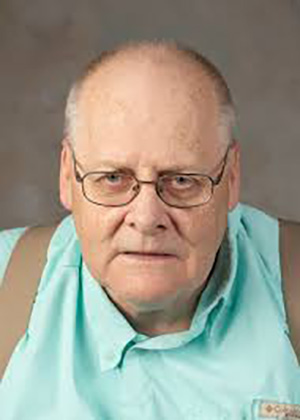By GREG MARKLEY
OPINION ––
All you see and hear about on most public affairs TV shows, and radio and podcast debates, is partisans yelling at each other. The hypocrisy is as thick as the humidity in an Alabama summer. If a Democrat falters in his personal life, Republicans forget that a previous officeholder in their own party did the same thing and all they said was, it was “nothing.”
Likewise, when a Republican introduces a new bill, Democrats immediately dismiss it, forgetting that they lauded their own lawmaker when she was pushing a similar bill. What happened to the honest brokers, wise pundits who judged issues independently of their political party on occasion? Those measured voices kept things less agitated for decades.
Now is a period where newspapers, too, run commentaries and editorials full of bile and lacking truth. This is part two of a series on ideas and writing. I explain the types of Op/Eds, how I attempt to be an “honest broker” and why I use humor and anecdotes to advance my opinions.
“Let us do something, while we have the chance! … Let us make the most of it, before it is too late! …At this place, at this moment of time, all mankind is us, whether we like it or not. Let us make the most of it, before it is too late!” So said a character in Samuel Beckett’s absurdist novel “Waiting For Godot”. Two men, Vladimir and Estragon, search for, but never meet, someone named Godot, discussing many issues, some farcical and some deep.
Three common types of Op/Eds are information, interpretation and commendation. Information is, for example, a column I wrote on human trafficking; it mostly has research. An interpretation highlights, for instance, what inflation is, how it got to be so high, and what we can do about it. A commendation salutes local people or groups with notable achievements.
Three other types of editorials are trending these days to be not only prevalent but harsh. They are argumentative, which, if done right can benefit readers; persuasive, which I try to be, without rancor; and critical, which in these days are abundant and often mean.
As for my writing, like many journalists I don’t believe objectivity can be followed much because we always bring our personal backgrounds to whatever we write. Perhaps balance, buttressed by knowing when we go over to one side too much, is the best we can do.
I pursued balance in a column titled “In the U.S. Senate, silence is not always golden.” Within a week, an Alabama Republican politician and a candidate for a federal judgeship both avoided tough questions at hearings. I chose not to have a separate column on each but to combine them. That way I could show unfortunate situations people get into and how they worsen them by being closed-mouthed.

The best way to write with an even-handed approach is to study as much as you can about the subject, from at least two sides, maybe more. If you just know the basics of a case, or incident or paper topic, you will commit a disservice to your readers. The more you know, and from divergent sources, the better your insights.
A dozen years ago, when I was doing a lot of both academic and newspaper writing, I developed a method that may appeal to you. It’s a hybrid between “stream of consciousness,” which means using one’s inner thought processes; and logical organization in writing.
First, I list about 30 topics, ideas, anecdotes or facts that I can trim down and shape into a strong narrative. Second, I cut that “on10 to 12 topics. Third, I make an outline to lead me to an engaging but not too long column (between 750 and 800 words). It takes from 1 hour 30 minutes to 1 hour 45 minutes to complete these steps. But boy, it invariably is a solid roadmap that saves me time and focus. It can for you, too.
I want you to adopt the values of fairness and balance. You don’t have to switch ideologies, parties, or who you are. You will be an asset in conversations that offers a genuine balance. With my tips on ideas and writing, you may be inspired. Or you might still be looking ahead for an honest broker or waiting, waiting for Godot.
Greg Markley moved to Lee County in 1996. He has masters’ degree in education and history. He taught politics as an adjunct in Georgia and Alabama. An award-winning writer in the Army and civilian life, he has contributed to the Observer since 2011. He is a member of the national Education Writers Association (focus-Higher Education). gm.markley@charter.net.

